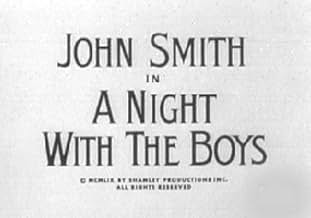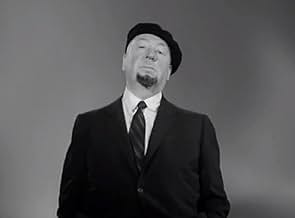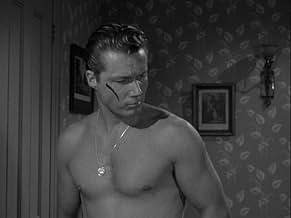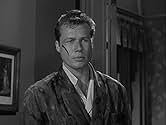After a husband fakes being the victim of a robbery to hide his gambling losses from his pregnant wife, the police still produce a suspect - with unexpected results.After a husband fakes being the victim of a robbery to hide his gambling losses from his pregnant wife, the police still produce a suspect - with unexpected results.After a husband fakes being the victim of a robbery to hide his gambling losses from his pregnant wife, the police still produce a suspect - with unexpected results.
- Director
- Writers
- Stars
- Director
- Writers
- All cast & crew
- Production, box office & more at IMDbPro
Featured reviews
It's a slender story with a mildly ironic payoff. The good thing is we can't tell where the story's going. Smith is excellent as the hesitant young guy, and we sympathize, though his sudden misgivings seem a stretch. Buffington's also persuasive as the obnoxious boss. But make-up should have done a better job with the cut that looks like a plastic paste-on. All in all, an average entry, at best.
(In passing— Catch hipster Hitch doing a jive-talking, bearded beatnik, circa 1959. It's a gas, daddy-o.)
It's the tale of a naive, married young man who still has a lot of growing up to do. He loses his paycheck in a poker game and walks home, too embarrassed to tell his wife when he's literally accosted by a policeman on patrol (yes, they really walked beats in those days) who informs the young fellow that he's strolling around in a dangerous neighborhood, full of young punks and muggers.
The man gets an idea to fake a mugging, messes himself up, even cuts his face, so that he can return home with an excuse for having no money in his pocket, as he had just been paid earlier. Fate intervenes when, at the urging of his wife, he calls the police, and at the station house a teenage boy who more or less matches his faked description of the mugger is brought in with exactly the same amount of money in his pocket that the young man lost playing cards.
Irony figures heavily in the story's ending; and its protagonist learns a lesson. As Hitch shows go, it's a slight tale and doesn't delve too deep, into human nature or urban life. However, in the hands of maestro director John Brahm, it comes off with a nice Film Noir sheen to it, with its atmosphere dark and menacing, it was made with a light enough touch to actually feel comfortable, or as comfortable as Noir can feel, for which the director deserves much of the credit.
In addition to the nice story, I really enjoyed Alfred Hitchcock's introduction...even more than usual. In this case, he's dressed like a beatnik and you just have to see it to appreciate it!
Did you know
- TriviaAll entries contain spoilers
- GoofsIrv's facial wound changes at the police station and back again when at home.
- Quotes
[introduction - Hitchcock is shown wearing a beret and with a false goatee]
Self - Host: Good evening, fellow members of the beat generation. Thank you for allowing me in your pad. Some of you cats are no doubt wondering how I got with it. Well, man, getting in this generation isn't hard. No, daddy-o, you just lie about your age. But I didn't join just for kicks or just to dig the crazy types. No, man. I joined because I wanted to be as avant as I could get. And this is it. I'm a jump man and I love to ball along with a wheel in the hand and a four on the road. I love to dig the cool notes of a tenor man blowing his top in a wild dive in San Fran. For it's then that I know the essence of life. But you must think me the talkinest cat that ever flipped. It's time to cut out. Disassociate me from the bourgeois trivia which follows. I'll dig you later.
- SoundtracksFuneral March of a Marionette
Written by Charles Gounod
Details
- Runtime
- 30m
- Color
- Aspect ratio
- 1.33 : 1















